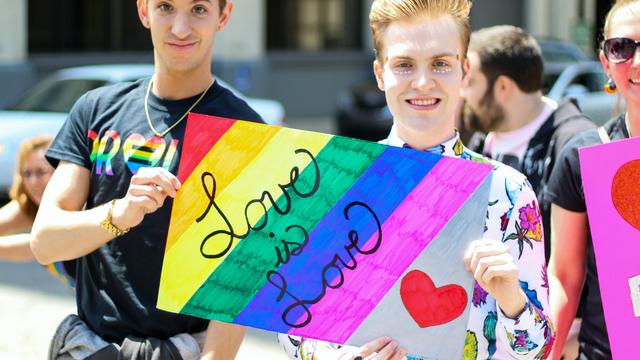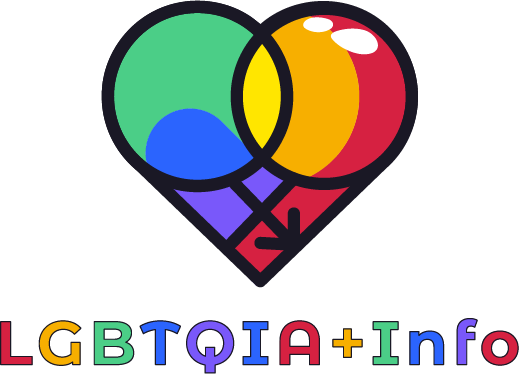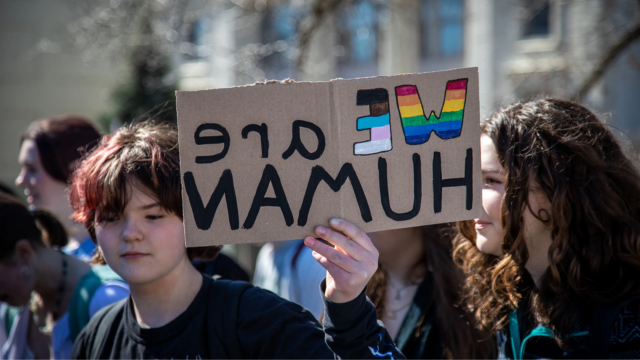The emergence of springtime. And while we welcome in the blossoms of spring, the showers of April, and the return of rooftop happy hours, let’s not forget to concentrate on the news and narratives that directly affect the Black LGBTQ community.
Finding stable work, securing stable housing, gaining access to affirming healthcare, and gaining social acceptance are all more difficult for those who live at the crossroads of race, culture, and sexual identity.
Some of these hurdles are embedded in the very fabric of American society, but many others have been built in recent years due to prejudice in newsrooms and by media executives who don’t care about accurately reporting on the Black LGBT experience.
Pressure on Black LGBT communities that was intended to defame, demean, and discriminate has instead given rise to genius, born resilience, and fueled ingenuity.
The COVID-19 and racial inequality pandemics have shown how much work the United States has to do to make its laws fair, just, and equitable for all people. Black gay people in the United States have to contend with the double whammy of racism and homophobia, and only then can one begin to grasp the prevailing news narratives around this topic.
Embracing the bittersweet reality of being Black and gay in America, I’ve produced a list of the five major stories I see affecting the Black LGBTQIA community right now.
1. Black queer characters taking the spotlight in television dramas
Hollywood is bestowing respect and acknowledging the beauty at the core of the Black queer experience by placing a significant emphasis on creating gay, queer, lesbian, transgender, and non-binary Black characters and making their humanity a prominent element of the stories of hit television shows.

Black LGBTQ upcoming music star Lil Murda is just one of the individuals viewers will meet on Starz’s “P-Valley.” Lil Murda is shedding light on the Black LGBTQIA experience and dispelling the myths surrounding the beautiful, different bodies that exist at the confluence of Blackness and queerness by virtue of its inclusive and diverse writer’s room.
Hollywood’s recent progress does not diminish the need for greater diversity and inclusion, but it does show some of the success garnered through giving Black LGBTQ lives and stories the respect they deserve.
2. Despite the U.S. The rights of LGBTI People are being impeded by state legislatures.
The governor of Tennessee just signed a bill that puts restrictions on drag shows. Lawmakers in Florida have enacted measures to limit what may be said about race, sexual orientation, and gender identity in classrooms. And in state legislatures around the nation, there are now 429 anti-LGBTQIA laws pending.
Several of those measures have become legislation this year in places like Texas, Alabama, and Arizona. These anti-queer pieces of legislation, which are disguised as “anti-woke,” affect everyone, but Black queer people in the United States feel its effects more acutely. Laws that discriminate against the dual Black LGBTQIA existence have led to heightened severe trauma, over-policed neighborhoods, and a racialized lack of access for Black LGBTQIA Americans.
While LGBTQIA problems have received improved coverage in the media because of diversity, equality, and inclusion programs in newsrooms throughout the United States, more has to be done to present stories that focus on the intersection of Blackness and LGBTI identities.
3. The Global Crusade to Discriminate Against Lesbian, Gay, Bisexual, and Transgender People of Color
Midway through the month of March, the Ugandan parliament approved a slew of anti-LGBTQIA laws. The new legislation will outlaw everyone who identifies as part of the LGBTQIA community and impose harsh penalties on anyone who engages in same-sex relationships.
The new legislation seems to be the first to criminalize being gay, lesbian, transgender, or queer, even though Uganda and 29 other African nations already have laws outlawing same-sex partnerships. Uganda’s latest action comes at a time when anti-LGBTQIA legislation is common in the majority of nations headed by Black and Brown people, as well as the United States, with the underlying purpose of erasing.
Citizens are often arrested by authorities in Saudi Arabia according to their perceived gender. The very presence of transgender and non-binary persons is criminalized in Nigeria. Furthermore, it is illegal in Malawi for males to have long hair. Most of these regulations are rooted in an effort to translate religious instruction and moral conviction into contemporary government, rendering them discriminatory towards members of the worldwide gay community, particularly those of darker skin tones. Although some nations are headed on the wrong path, others are trying to undo decades of damage.

St. Kitts and Nevis’s criminalization of same-sex relationships was overturned by the Eastern Caribbean Supreme Court in August 2022. Same-sex couples were legally recognized in Antigua and Barbuda as of July of that year.
The fight for greater representation and equitable access to human rights seems to be at the forefront of Black LGBTQ activists’ minds throughout the world as the rights movement, the growth of PRIDE celebrations, and grassroots organizing continue in the Caribbean and Africa.
Several Black LGBT activists have shown a spirit of courage that harkens back to the Stonewall Rebellion of 1974 when they risked their lives for the liberation of their community. The whole LGBTI community can be proud of this display of power, which should increase attention to the worldwide struggle for equality.
4. Problems Getting Good Medical Care
Access to high-quality healthcare is at the heart of the numerous arteries leading to injustices that Black LGBTQ people face in the United States.
Black LGBTI People have historically been exposed to a discriminatory medical environment, often living in “health deserts” where they lack access to affordable healthcare, health information, and services. Higher rates of HIV transmission and infection, as well as significant increases in mental health and drug misuse, may be directly attributed to these inequalities.
Access to healthcare is a major plot point because of these avoidable health effects and the escalation of prejudice and violence based on sexual orientation.

At least 32 transgender and gender nonconforming persons were murdered in the United States in 2022, according to the Human Rights Campaign. Eighty-one percent of victims this year were transgender individuals of color, the majority of whom were Black (59 percent). As part of the LGBTQIA movement ahead, it is essential to highlight success stories about healthcare models for Black gay communities and to highlight horror tales about individuals who cannot receive treatment. Without these narratives, the current healthcare system will continue to serve just a select few.
5. An All-Inclusive Redefinition of Black Masculinity
The media’s stigma, over-criminalization, bastardization, and lack of care in defining Black men and their masculinity are foundational to understanding one of the many problems affecting Black LGBT Americans.
In the media’s view, Black masculinity has been branded to mean overt strength, a predisposition to violence, and a lack of compassion for one’s family, all of which are false. Because of this established norm, the general public views shows of love between Black males with a homophobic bias that is seldom extended to white men. This perspective, which is wrong in both its reasoning and its conceptualization, has done damage to Black LGBT people and contributed to the pain experienced by Black guys all throughout the nation.
Fortunately, activists, musicians, and performers of African descent have taken it upon themselves to alter the definition. Some of the leaders in this movement include Jonathan Majors, Michael B. Jordan, Saucy Santana, Kid Cudi, “The Quintessential Gentleman,” “FANTI Podcast,” and “Vibe Check.” While there is still much to be done, this revitalizing dialogue has given Black men of all orientations and identities the tools they need to define themselves and give value to their humanity.
————————————————————————————–
The Black community, particularly the GLBT community, has been disproportionately hit by the COVID-19 epidemic. And while the United States strives to recover from the epidemic and return to normalcy, Black queer narratives should be at the forefront. While it may not be universally well-liked, it must be done if we want to create communities where everyone may feel at home and thrive.

